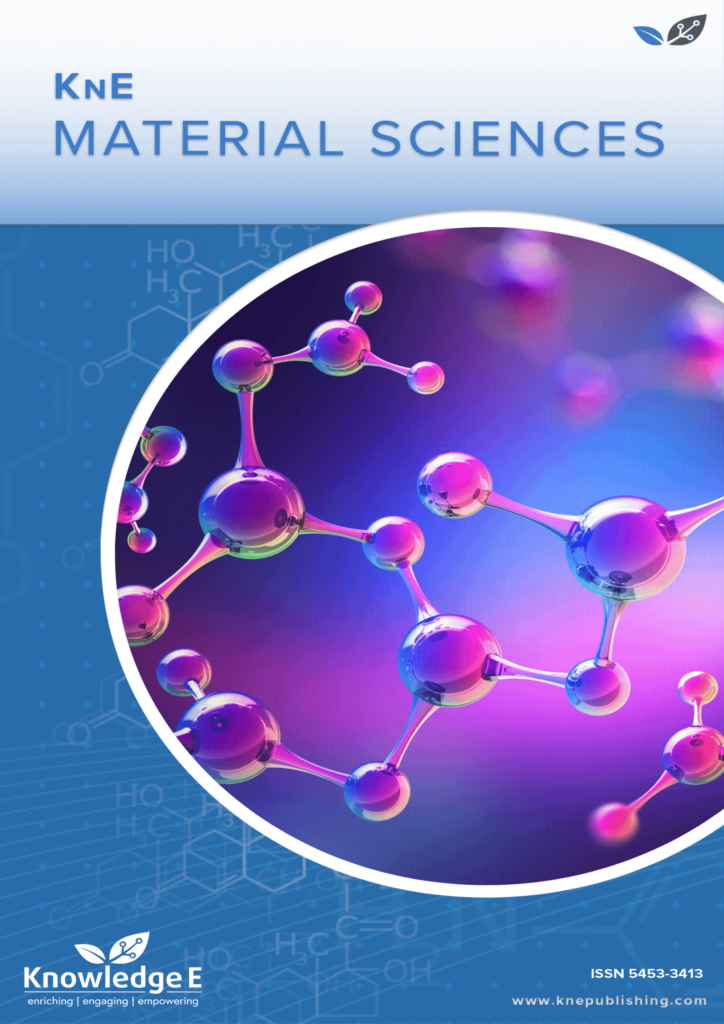
KnE Material Sciences
ISSN: 2519-1438
The latest conference proceedings on physical materials, energy materials, electrical materials.
The Development of Plasma Incineration Technologies for Utilization and Neutralization of Waste Hazardous Class
Published date:Dec 31 2020
Journal Title: KnE Material Sciences
Issue title: IV Congress “Fundamental Research and Applied Developing of Recycling and Utilization Processes of Technogenic Formations” Volume 2020
Pages:51–58
Authors:
Abstract:
In this study, the results of studies for plasma incineration processes in technologies of waste disposal and disposal are presented. Due to the high temperatures of the plasma jet (up to 10 thousand K), the speed of the process, the small influence of atmospheric oxygen, the necessary conditions for the neutralization of almost any toxic gases arise. It is noted that the evaluation of the efficiency of toxic gases neutralization with the use of plasma torches is a multiparameter problem, since in addition to the constructive ones, the gas-dynamic and heat-power parameters should be taken into account. The gas-dynamic parameters of the air-plasma flow in the plasma torch mixing chamber for environmental technologies are determined by methods of mathematical modeling. The characteristic temperatures, velocities and heating times of the utilized gas in different areas of the mixing chamber are calculated. Different configurations of mixing chambers with varying confusability are considered. The directions of further research and development necessary to create a technology of plasma incineration with maximum efficiency of disinfection are indicated. The issues of plasma incineration introduction at certain stages of high-temperature waste disposal technologies are also considered. The main advantages of technologies based on high-temperature plasma impact on materials, as well as the main directions of their application in waste management strategies are noted.
Keywords: ecological safety, waste recycling, waste treatment, decontamination, incineration, plasma torch
References:
[1] Cherednichenko, V. S., Anshakov, A. S. and Kuzmin, M. G. (2011). Plasma Electrotechnological Installations. Novosibirsk: NGTU.
[2] Anakhov, S. V. and Pyckin, Y. A. (2012). Ecological Designing: Strategy and Technologies. Saarbrucken: LAP LAMBERT Academic Publishing.
[3] Anakhov, S. V., Pyckin, Y. A. and Shakurov, S. A. (2014). System Principles in Solving Problems of Environmental Safety with the Use of Plasma Technologies. Ecology and Industry of Russia, issue 4, pp. 4-9.
[4] Fridman, A. (2008). Plasma Chemistry. Cambridge University Press.
[5] Anakhov, S. V. (2018). Principles and Methods of Plasma Torches Designing. Yekaterinburg: RSVPU.
[6] Anakhov, S. V., Pyckin, Y. A. and Shakurov, S. A. (2007). Patent № 67909 RF. Plasmatron.
[7] Parfenyuk, A. S., Antonyuk, S. I. and Toporov, A. A. (2002.) Dioxins: The Problem of Technogenic Safety for Technologies of Carbon Waste Thermal Processing. EcoTechnologies and resource saving, issue 6, pp. 40-44.